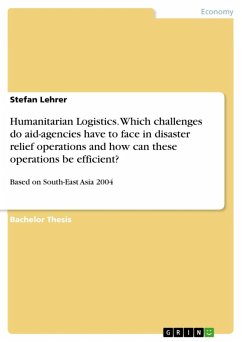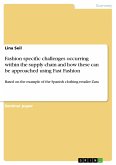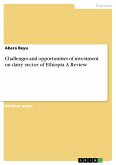Bachelor Thesis from the year 2015 in the subject Business economics - Supply, Production, Logistics, grade: 1,0, University of Applied Sciences Graz, course: Internationale Logistik und Distribution, language: English, abstract: The objective of the paper is to define the differences between commercial logistics and humanitarian logistics and to analyze the efficiency of the disaster relief operation in South-East Asia 2004. The first part of this paper focuses on theoretical implications and deals, among others, with the definition of humanitarian logistics. Further, the differences of humanitarian logistics and commercial logistics will be analyzed based on the previous discussed definition. Moreover, the different objectives of humanitarian logistics and commercial logistics as well as the challenges of cooperation and coordination based on the high number of actors involved need to be emphasized. Part 2 of this paper analyzes the disaster relief operation in the crisis region of South-East Asia. In order to do so, the disaster relief response and its potential for improvement will be segmented and analyzed in three phases consisting of preparation, immediate response and reconstruction. Insufficiencies of every phase will be explained. While researching for this paper it became obvious that the risk of a tsunami was neglected in terms of preparation. During the phase of immediate response, deficiencies concerning cooperation and coordination led to insufficiencies in the disaster relief operation. The phase of reconstruction focuses on tsunami-specific challenges. The main developments in the South-East Asian region since the tsunami-catastrophe in 2004 will be mentioned.
Dieser Download kann aus rechtlichen Gründen nur mit Rechnungsadresse in A, B, BG, CY, CZ, D, DK, EW, E, FIN, F, GR, HR, H, IRL, I, LT, L, LR, M, NL, PL, P, R, S, SLO, SK ausgeliefert werden.






